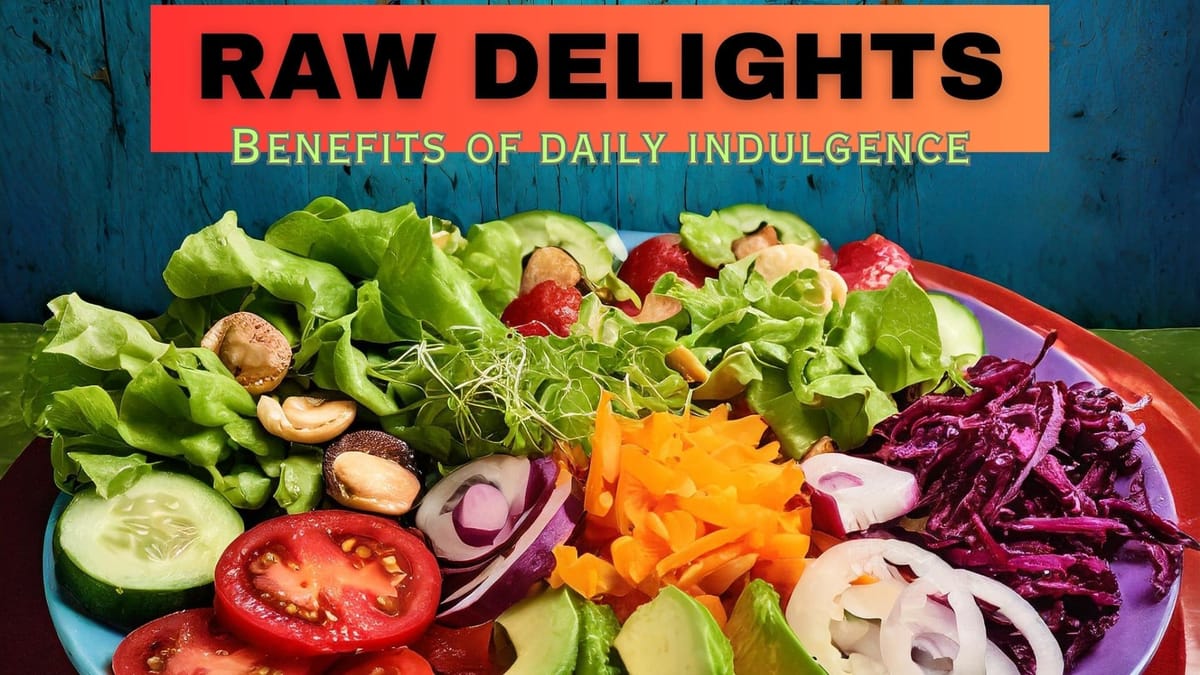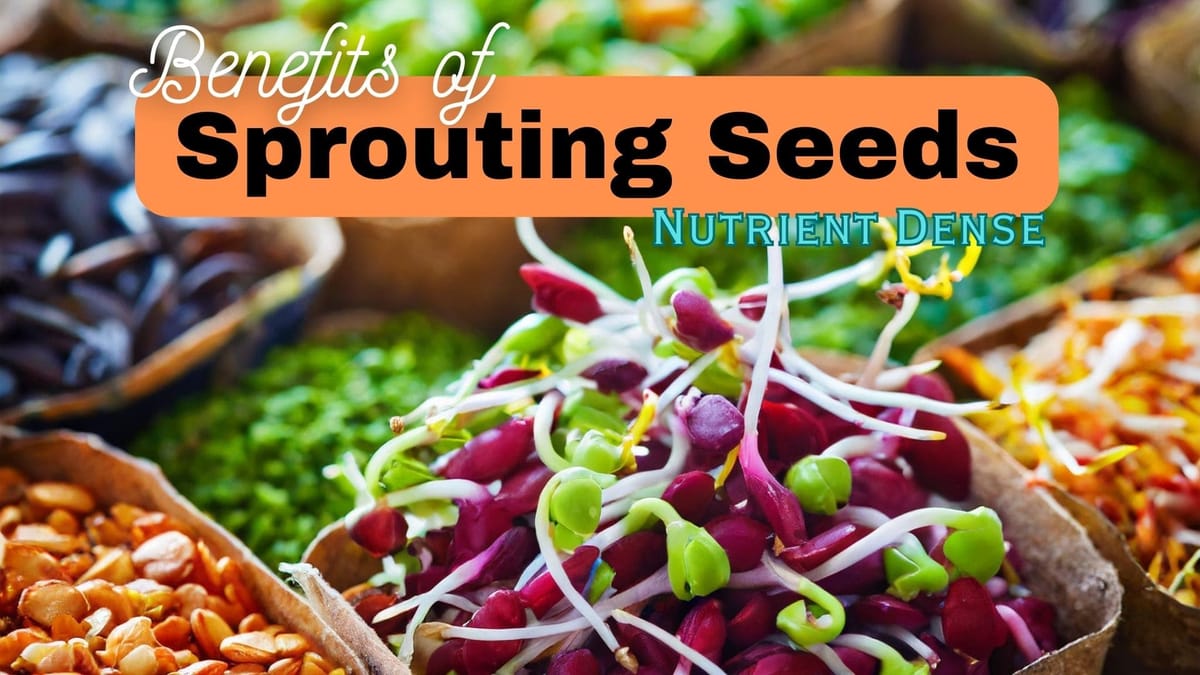Superfoods: Unveiling Nature's Nutritional Powerhouses
Superfoods are foods packed with an exceptional concentration of vitamins, minerals, antioxidants, and other beneficial compounds that promote overall health and well-being.

In the ever-evolving world of health and wellness, the term "superfood" has become a buzzword that captures the essence of nature's most nutrient-dense offerings. But what exactly are superfoods, and why are they considered nutritional powerhouses? Superfoods are foods packed with an exceptional concentration of vitamins, minerals, antioxidants, and other beneficial compounds that promote overall health and well-being. These nutritional gems have garnered widespread attention for their potential to boost immunity, combat chronic diseases, and support various bodily functions.
Key Superfoods Discussed
- Kale
- Blueberries
- Quinoa
- Chia seeds
- Spinach
- Benefits
- Myths and Facts
- Environmental Impact
Exploration of Some Key Superfoods
The world of superfoods is vast and diverse, with each offering its unique array of health-promoting properties. Let's explore a few of the most celebrated superfoods and uncover their remarkable nutritional profiles.
- Kale: Often hailed as a nutritional powerhouse, kale is a member of the cruciferous vegetable family and a true superfood contender. This dark, leafy green is an excellent source of vitamins A, C, and K, and minerals like calcium, iron, and magnesium. Kale is also rich in antioxidants, including flavonoids and carotenoids, which help protect the body against oxidative stress and inflammation.
- Blueberries: These tiny, indigo-hued berries pack a mighty punch of antioxidants, particularly anthocyanins, responsible for their vibrant colour. Blueberries are also a good source of fibre, vitamin C, and vitamin K, making them a delightful addition to any diet. Numerous studies have suggested that regular consumption of blueberries may contribute to improved brain function, cardiovascular health, and blood sugar regulation.
- Quinoa: While often mistaken for a grain, quinoa is a seed from the plant family Amaranthaceae. This superfood is a complete protein source, containing all nine essential amino acids, making it a valuable addition to vegetarian and vegan diets. Quinoa is also rich in fibre, iron, magnesium, and antioxidants, making it a versatile and nutritious ingredient in various dishes.
- Chia Seeds: These tiny black or white seeds, originating from the plant Salvia hispanica, have gained immense popularity among health-conscious individuals. Chia seeds are an excellent source of fibre, omega-3 fatty acids, protein, and antioxidants. They absorb water and form a gel-like substance to aid digestive health and hydration.
- Spinach: Popeye the Sailor Man had it right – spinach is a superfood that deserves a spot in everyone's diet. This leafy green is a powerhouse of nutrients, including vitamins A, C, and K, folate, iron, and magnesium. Spinach is also rich in antioxidants, such as lutein and zeaxanthin, which are beneficial for eye health
Nutrient Density and Health Benefits: While the specific nutrient profiles of superfoods may vary, they share a common trait; they are incredibly dense in essential vitamins, minerals, antioxidants, and other beneficial compounds that work synergistically to support overall health and well-being.

Potential health benefits
Boosted Immunity
Many superfoods are rich in vitamins C and E, as well as antioxidants like flavonoids and carotenoids, which can help strengthen the immune system and protect against harmful pathogens.
Reduced Risk of Chronic Diseases
The abundance of antioxidants in superfoods may help combat oxidative stress, a key contributor to the development of chronic conditions like heart disease, cancer, and diabetes.
Improved Digestion
The fiber content in superfoods like chia seeds, quinoa, and leafy greens can promote healthy digestion and support regular bowel movements.
Enhanced Brain Function
Certain superfoods, such as blueberries and fatty fish, are rich in compounds that may contribute to improved cognitive function, memory, and overall brain health.
Increased Energy Levels
The high nutrient density of superfoods can provide sustained energy throughout the day, helping to combat fatigue and support an active lifestyle.
Scientific Evidence
While the health benefits of superfoods are often touted, it's essential to understand the scientific evidence that supports these claims. Numerous studies have been conducted on the effects of various superfoods, and the results are promising.
For example, a study published in the Journal of Agricultural and Food Chemistry found that the antioxidants in blueberries may help improve cognitive function and memory in older adults. Another study in the Journal of Nutrition and Metabolism suggested that consuming quinoa as part of a weight loss diet can improve blood lipid profiles and reduce risk factors for cardiovascular disease.
Similarly, research published in the Journal of the American College of Nutrition highlighted the potential benefits of kale in reducing oxidative stress and inflammation, both of which are linked to various chronic diseases.
Incorporating Superfoods into the diet with the wealth of nutritional benefits superfoods offer, it's no wonder that many health-conscious individuals are eager to incorporate them into their daily diets. Fortunately, adding these nutrient-dense powerhouses to your meals and snacks is easier than you might think.

Superfood Myths and Facts
Superfoods undoubtedly possess impressive nutritional profiles. It is essential to separate fact from fiction relating to purported benefits. Here are some common myths and corresponding facts about superfoods:
Myth: Superfoods are a cure-all for every health condition.
Fact: While superfoods offer numerous health benefits, they are not a panacea for all ailments. They should be consumed as part of a balanced diet and healthy lifestyle, but not relied upon as a sole solution for specific health issues.
Myth: Superfoods can replace traditional fruits and vegetables.
Fact: Superfoods are not intended to replace other nutrient-dense foods but rather to complement them. A well-rounded diet should include a variety of fruits, vegetables, whole grains, lean proteins, and healthy fats.
Myth: Superfoods can counteract the effects of an unhealthy lifestyle.
Fact: While superfoods can contribute to overall health, they cannot undo the damage caused by poor lifestyle choices, such as lack of exercise, smoking, or excessive consumption of processed and unhealthy foods.
Environmental Impact and Sustainability
As the demand for superfoods continues to rise, it's crucial to consider their environmental impact and sustainability. Some superfoods, like quinoa and chia seeds, are grown in specific regions and may have a significant carbon footprint due to transportation and cultivation practices.
To ensure a more sustainable future, it's essential to support local and seasonal produce whenever possible, while also being mindful of the ethical considerations surrounding the production and consumption of imported superfoods. By making informed choices and supporting sustainable farming practices, we can enjoy the benefits of superfoods while minimizing our environmental impact.
Superfoods have emerged as true powerhouses, offering a concentrated source of essential vitamins, minerals, antioxidants, and other beneficial compounds. From kale and blueberries to quinoa and chia seeds, these nutrient-dense foods have the potential to boost immunity, combat chronic diseases, and support overall health and well-being.
While the scientific evidence surrounding superfoods is promising, it is important to approach their benefits with a balanced perspective. Incorporating a variety of superfoods into a well-rounded diet and maintaining an active lifestyle can be a powerful strategy for optimizing health and embracing a sustainable approach to wellness.
Remember, superfoods are not a magic solution, but a valuable addition to a balanced and diverse diet. By embracing these nutritional gems and separating fact from fiction, we can harness the power of nature's bounty and embark on a journey toward optimal health and vitality.






